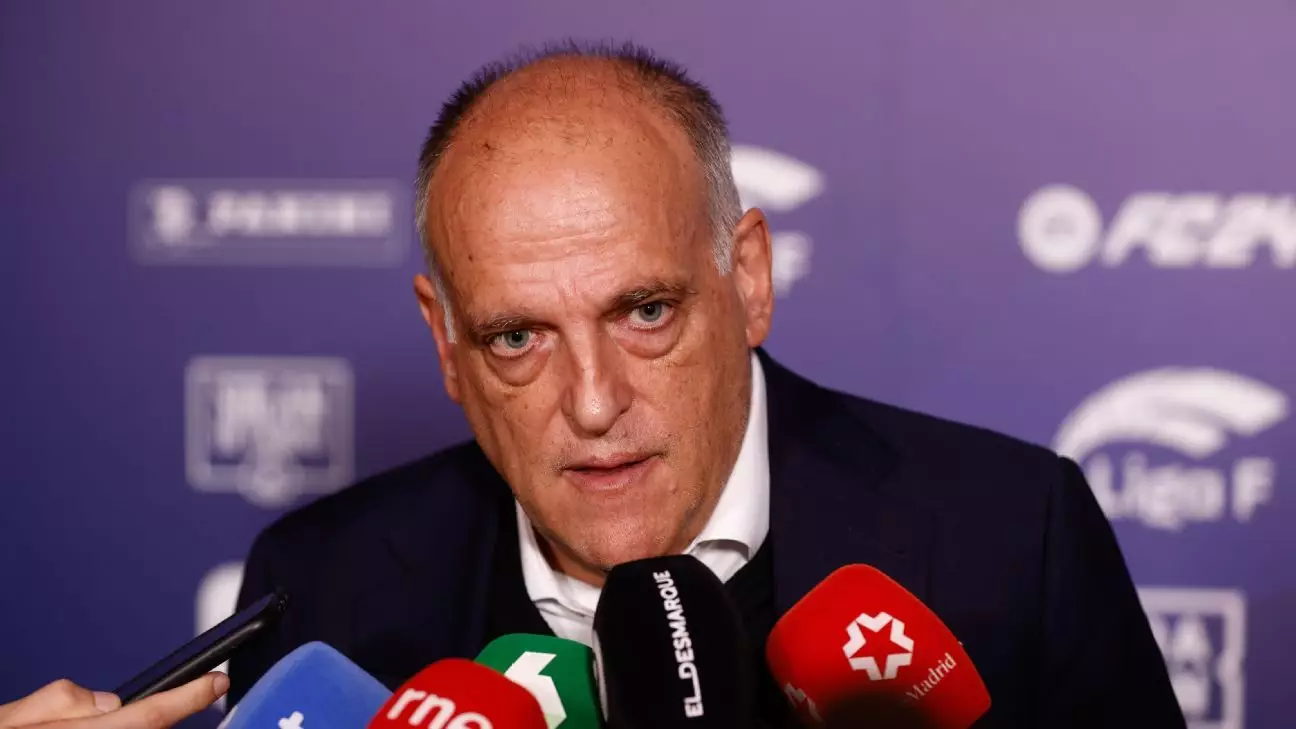The contentious dynamics within European football governance often come to the fore during disputes over power and transparency. A recent incident has emerged involving Javier Tebas, the president of LaLiga, and Real Madrid, one of the league’s fiercest competitors. The Administrative Sports Court (TAD) of Spain recently issued a public reprimand to Tebas following a complaint lodged by Real Madrid regarding the procedures surrounding a crucial assembly meeting in August 2021. This meeting centered on a significant agreement with the investment firm CVC Capital Partners aimed at generating revenue through TV rights. Real Madrid’s allegations of improper conduct by Tebas, including claims of a lack of transparency and abuse of power, highlight deeper tensions within the governance framework of LaLiga.
The ruling from TAD has sparked considerable debate, not only because of its implications for Tebas’ leadership but also due to its potential impact on the broader operations of LaLiga. While the TAD stopped short of suspending Tebas, the decision underscored the necessity for strict adherence to procedural norms, particularly regarding meeting notifications. Real Madrid accused Tebas of calling the General Assembly with insufficient notice and under unclear pretenses of urgency, failing to meet the mandated ten days by two days. Here, the friction between the traditional practices of football administration and the innovative but controversial approaches, such as the CVC deal, plays a pivotal role in understanding the current state of LaLiga.
In response to the ruling, LaLiga has firmly voiced its disagreement, illustrating the organization’s commitment to its president and the procedures that were undertaken. LaLiga released a statement asserting that Tebas acted within statutory requirements and that the complaint raised by Real Madrid lacked merit. This strong stance signifies LaLiga’s attempt to maintain stability and support for Tebas, while also reinforcing their policies regarding external investments and revenue generation within the league. Such conflicting perspectives could indicate a fracturing of unity among the league committees and member clubs, particularly as they wrestle with the increasing influence of private equity in the football landscape.
The Future of LaLiga Governance
Looking forward, the episode involving Javier Tebas and Real Madrid may serve as a critical juncture for LaLiga. As clubs assess the implications of the CVC deal and its governance characteristics, leaders must navigate the complexities of modern football’s financial environment. In an era where investments and television rights are pivotal, ensuring transparency and fairness in decision-making processes will be crucial for the league’s integrity. Furthermore, the balance of power needs careful management, particularly as traditional giants like Real Madrid and Barcelona express their discontent over perceived inequities.
Overall, the tension encapsulated in this recent incident reflects broader trends within football governance, highlighting the urgent need for clarity, transparency, and mutual respect among club stakeholders. The future of LaLiga and its management practices will likely be scrutinized closely, as organizations strive to find equilibrium between profitability and the passionate heritage of Spanish football.

Leave a Reply